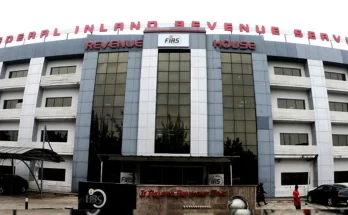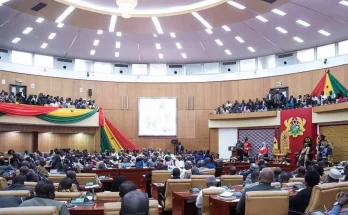Proposed U.S. Remittance Tax. A newly introduced bill in the United States could significantly alter the flow of personal remittances to Africa by imposing a 5% excise tax on money transfers made by migrants.
The proposed measure, part of a broader legislative package passed by the U.S. House of Representatives on May 22, is now awaiting Senate consideration.
If passed, the tax would apply to non-citizens sending funds outside the U.S., potentially impacting millions of African families and several fintech businesses across the continent.
Africa’s $13 Billion Remittance Lifeline at Risk
According to available data, migrants from the African continent remit nearly $13 billion annually from the U.S. alone, supporting household expenses, school fees, healthcare, and small-scale businesses.
In 2021, for example, Nigeria received over $5.7 billion, Egypt $1.8 billion, and Kenya $1.2 billion in U.S.-based remittances.
Analysts warn that introducing a 5% levy on these funds could discourage formal transfers, reduce remittance volumes, and erode critical financial lifelines for low- and middle-income households across Africa.
South Africa Drops VAT Hike, Focuses on Debt Control and Social Spending
Proposed U.S. Remittance Tax: Fintech Startups Brace for Disruption
African fintech companies offering cross-border payment solutions are also on alert. Firms like Lemfi, NALA, Kuda, and Moniepoint, which have become popular for their speed, affordability, and accessibility, stand to lose customers who may opt for informal or underground channels to avoid additional costs.
Barclays Bank, in a recent market note, cautioned that cash-based and retail remittance platforms would be the most immediately affected.
The bank also highlighted a compliance burden, as money transfer providers would now be required to verify and report the immigration status of their users under the proposed law.
“This adds complexity and cost to an already sensitive space,” Barclays noted.
U.S. Budget Politics Behind the Proposal
The remittance tax is part of “The Big and Beautiful Bill,” a Republican-backed effort aimed at extending tax credits introduced during former President Donald Trump’s first term.
However, these tax credits come with a heavy fiscal cost, estimated to increase the U.S. federal deficit by up to $4 trillion over the next decade. To balance the books, the bill proposes both public spending cuts (including Medicaid and SNAP) and new revenue measures, such as the remittance tax.
Critically, this new levy would only apply to non-U.S. citizens, including undocumented immigrants, green card holders, and foreign nationals on work permits—many of whom regularly support families in Africa
Experts Warn of Rise in Informal Transfers and Crypto Use
If passed, the law may push many migrants to seek alternative transfer mechanisms—especially those outside government oversight.
Dr. Manuel Orozco, a migration and remittances expert at the Inter-American Dialogue, noted that people may turn to cryptocurrencies or other unregulated platforms to bypass the tax.
“People will find other ways to send money,” he said, adding that crypto wallets and blockchain platforms not registered as money transfer services could become more attractive.
Coin Center, a U.S.-based digital rights organization, confirmed that self-hosted crypto wallets currently fall outside the scope of the proposed legislation.
Final Decision Rests with U.S. Senate
While the bill has cleared its first major hurdle in the House, the Senate’s response remains uncertain. If the proposal survives further scrutiny, it could become law in the coming months.
For now, African governments, financial regulators, and fintech stakeholders are being advised to closely monitor developments, as the outcome could reshape the remittance landscape and affect tax revenues, foreign exchange inflows, and financial inclusion strategies across the continent.




